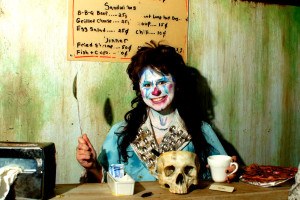The Interview: Film Actor and “Macbeth” Star Faran Tahir
"What bloody man is that?" Why, it’s the Iron Man alum, who'll bring Shakespeare to the Boston Common masses this summer.
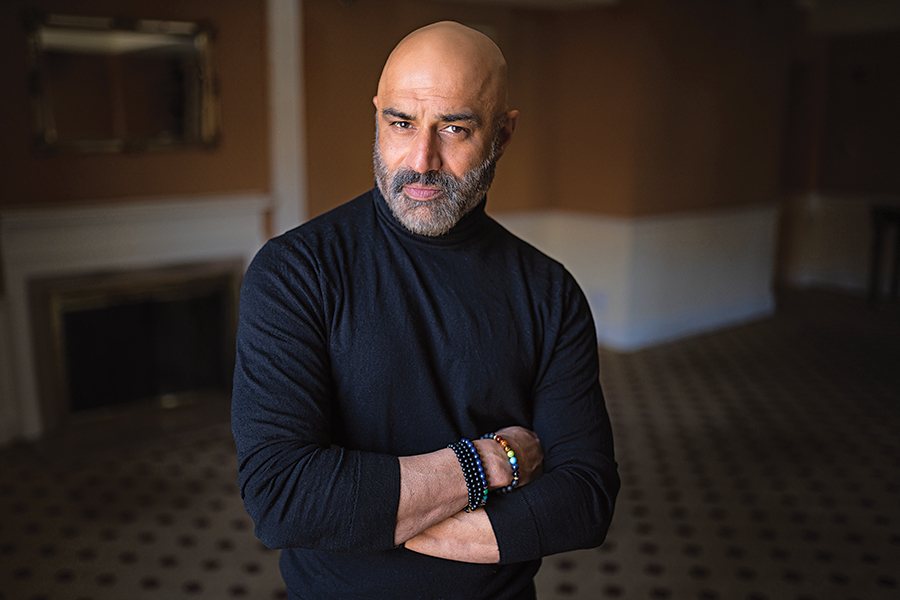
Photo by Nile Scott Studio
Boston holds a lot of meaning for Pakistani-American actor Faran Tahir. It’s where he earned his master’s degree in theater, where his first child was born, and now it’s where he gets to run the gamut of ambition and guilt in the title role of Macbeth for Commonwealth Shakespeare Company’s free production on Boston Common, running July 19 through August 6. Born in Los Angeles, Tahir has the arts in his blood: He’s the son of actor and columnist Naeem Tahir and Yasmin Tahir, the prominent voice of Radio Pakistan. Best known for roles in blockbuster films such as Iron Man and Star Trek, Tahir himself boasts a lengthy list of credits, including the titular role in Shakespeare on the Common’s Richard III. We caught him on a break from his busy film schedule to talk about speeding tickets, nicknames, and being recognized in the North End.
What’s the most important thing you learned while studying at the A.R.T. Institute at Harvard?
To actually trust myself to tell the story and get out of the way. To always honor the story, and that you don’t need to complicate things too much. Oftentimes the simplest choice is the bravest choice, but we tend to complicate things.
Favorite thing about Boston?
Boston is one of the places where I actually feel at home. I studied there, spent really formative years there, and had my first child there. And I tell you: 20 years after I lived there, I went to a restaurant in the North End, and they still recognized me. They didn’t even charge me for the food. There’s a hospitality and warmth to Boston once you’re accepted into the culture so that you always know you have a place where you belong. And that’s beautiful.
Your family in Pakistan is acting royalty, but as an undergrad at the University of California, Berkeley, you studied economics and business. What made you switch?
Stupidity. [Laughs.] No, it was because that’s what my brain told me to do. Logically, I thought I should probably do something that would pay my bills. But my heart was in acting. My adviser pulled me aside one day and said, “You know, you have academic schizophrenia. You will never graduate.” So we came up with a way for me to incorporate the two in my thesis. And I think ultimately I ended up getting the education that I really wanted.
Right now, you’re filming three movies on three different continents. How many frequent flyer miles have you racked up?
See, that’s one of the positives of it. I think I’m into the hundreds of thousands, which will be awesome for when I want to bump up to business class.
Favorite Shakespeare play?
It changes with time and age. A few years ago, I thought that it would be a fantasy come true if I could do Othello and Richard III and then Macbeth at this age. And it just so happens that dream is coming true.
Okay, name a working actor who has not been on Law & Order.
[Laughs.] There are none. I think we all have to go through that rite of passage. Although, I do have the honor of being on the first season. That’s something special.
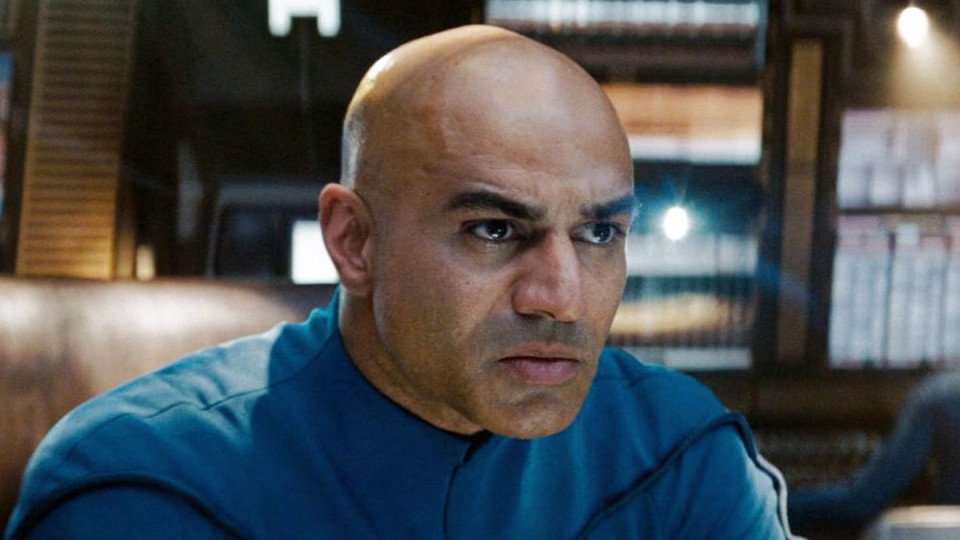
Tahir as Captain Robau in the J.J. Abrams’ 2009 movie Star Trek. / Courtesy Paramount Pictures
Were you a Star Trek fan before you played Captain Robau?
Yes, sir. I was, to the point where the day my youngest brother was to be born, my big fear was that he’d be born at the time Star Trek was on. My mother went into labor and delivered my brother, and then my father came home and said, “Hey, you have a brother. Let’s go see him.” That was around 6:30 in the evening, and 8 o’clock was when Star Trek came on. I did everything I could to postpone going to see my baby brother.
Star Trek has such a rabid fanbase. What’s the strangest place that someone has recognized you?
[Laughs.] I went on my pilgrimage to Mecca many, many years ago. And as I was circling the Kaaba, somebody tapped me on the shoulder and said, “You were in Star Trek, right?” That was a bizarre moment. Another time that was kind of funny was when I was speeding down a highway in California and, of course, a police officer comes by. The guy comes up and says, “You think you’re captain of the Starship Enterprise?” Then he recognized me and goes, “Oh, well, I guess….” And he didn’t give me a ticket.
What will you bring to Macbeth that other actors don’t—or haven’t?
I’ve been thinking about that a lot. I feel like sometimes people go directly to his ambition, whereas I think he gets there kicking and screaming. It’s not that he hasn’t killed before. He’s a soldier, and when we meet him, he’s coming back from war. We hear all about his actions on the battlefield. And I think the hardest thing for a soldier is not to have clarity of mission. In this particular case, his own conscience gets in the way, and I think, until the very end, he has this hesitancy. I think that dilemma is at the crux of the play, not his ambition.
Which do you prefer playing: villains or heroes?
The thing about villains is that they’re delicious to play. You don’t have to be liked. You can do whatever you feel like doing, and that’s a lot of fun. I also think villains tend to stick in people’s minds more because there’s some kind of pleasure to living vicariously through someone who does things we can’t do in our own lives. I’ve played my share of good and bad guys—but another thing I like about being the villain is that it might be easy to show him doing nefarious, terrible things, but how do you find the human side that makes people connect to the character? That’s the challenge: How do you find the cracks that show some vulnerability or accessibility? Nobody gets up in the morning and says, “I’m going to be the most despicable person in the world.” So the challenge is finding the other side, and I like exploring that.
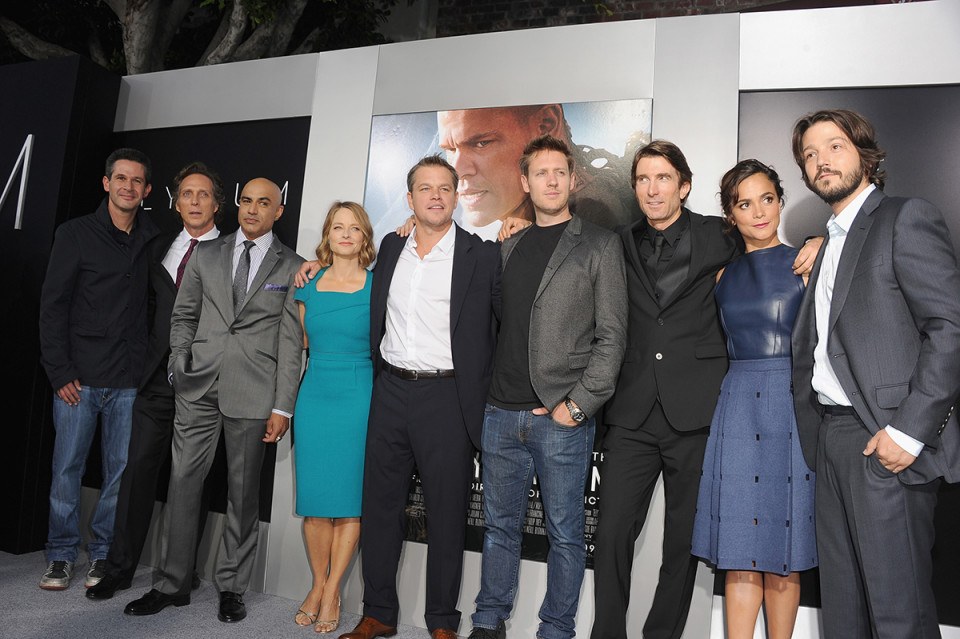
Tahir at the premiere of 2013’s Elysium, with (left to right): producer Simon Kinberg, actor William Fichtner, Jodie Foster, Matt Damon, director Neill Blomkamp, Sharlto Copley, Alice Braga, and Diego Luna. / Photo by Kevin Winter/Getty Images
Anything you’d erase from your résumé?
Well, it’s a body of work, and not all of it is great. Some of it leaves something to be desired, but I think that’s a good thing. It can prepare you to do better than you did the last time.
Any role you wanted and almost got but didn’t?
A few. There have been a couple of things on stage that I really wanted, and somebody else ended up doing it, and some TV and film roles that didn’t happen. But that’s okay. Because I don’t dwell on those things. The way I look at it is that it’s not a statement on me. Maybe the director’s vision is more aligned with some other actor’s approach. You’ve got to be a big boy. You can’t be destroyed by these setbacks, if you want to call them that.
Favorite of the films that you’ve been in?
That’s lots of different beasts, but the ones that are really wonderful, collaborative experiences. Iron Man was one of them. It was a very fun project to work on because it was the flagship production of Marvel, the one that started off the whole
Marvel Universe, and there was a lot of care put into it. And then there are others where it’s a favorite because the character was challenging.
Biggest lie you ever had on your acting résumé?
My earliest résumé was nothing but lies. [Laughs.] Could I speak Greek? Yes! Italian? I’m fluent in Italian!
Any role you turned down that you wish you hadn’t?
No, but you asked me about roles I came close to doing—I was up for The English Patient, and I came very close. Of course, Naveen Andrews did a wonderful job. That was very early in my career, and I’d read the book and loved it and thought I could build something unique, but that’s just how this business is. When you see somebody else do it, you realize that the other person may have been a better choice.
How many degrees of Kevin Bacon are you?
One degree. I did a movie with him called Picture Perfect. It was the year I came out of my MFA program.
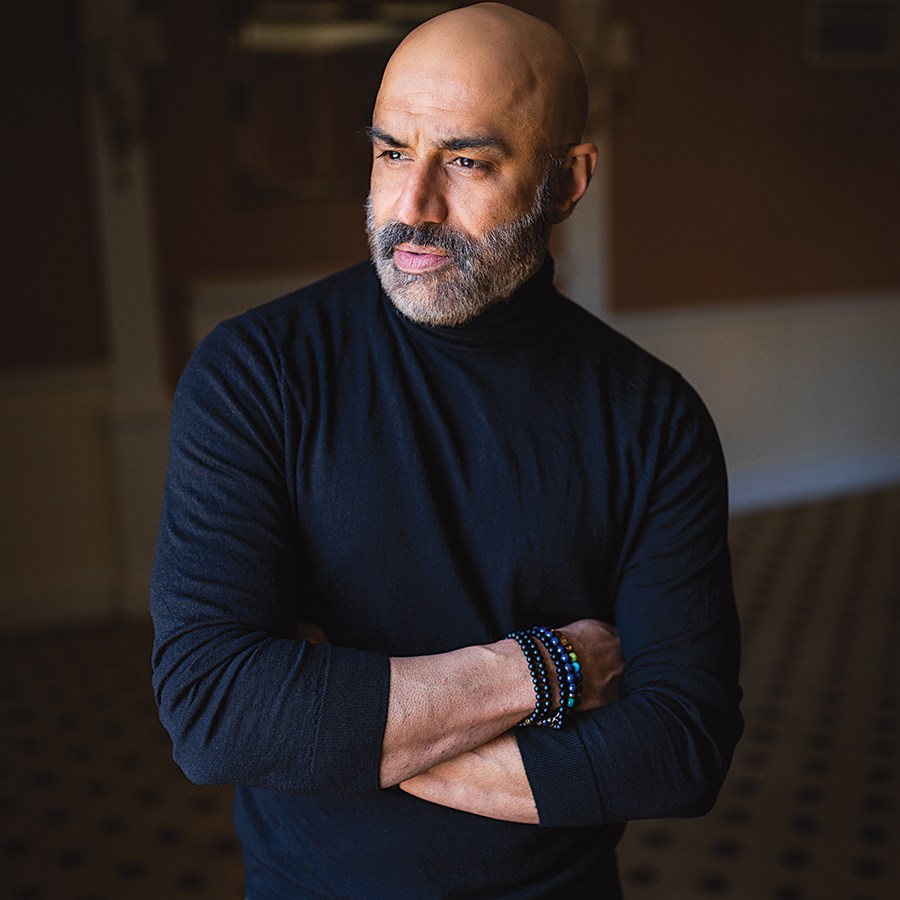
Photo by Nile Scott Studio
Is it harder for actors from South Asia to make it in Hollywood?
It’s not easy; there’s no doubt. I also feel that we, as South Asians or people of different ethnicities, are the best people to tell our stories, and we need to band together. Which is not to say that we need to take the misrepresentation that happens lying down, either. But if we want to improve those storylines, we’ll need to do it.
Worst audition nightmare?
Oh, when you go in and you think you’re completely ready, and then all of a sudden, for one reason or another, you draw a complete blank. You’re out there, and you feel like you have nothing on. It’s happened to me a couple of times where, for the life of me, I could not remember my lines. Needless to say, I never got those parts.
Since you’re part of the Marvel Universe: If you had a superpower, what would it be?
Maybe invisibility, so that I could listen to people when they’re talking about me.
Your great-grandmother published a feminist magazine. Your grandmother was the first Muslim female pilot. Do you consider yourself a feminist?
Well, because of the history of my family, the idea of feminism was always a given to us. Women and men had equal powers and abilities. So do I consider myself a feminist? Yeah, maybe in the sense that the world thinks of it. But the way I was brought up, that was just natural.
Anyone you’d never work with again, and why?
Yes, there are a few people. Anybody who is not being selfless, who assumes it’s all about them. It’s a disservice to what we do, and there are a few people with whom it’s very evident that they believe it’s all about them. As much as people think this business is about egos, it’s not. It’s about the work.
Which do you prefer: stage, film, or television?
I prefer telling stories, and it really depends on what story I’m telling and what is the best media. You mentioned Star Trek. If we were to do a stage version, it probably wouldn’t have the same impact. Certain stories are best told on the big screen. Similarly, although Shakespeare can be very grand, most of the Shakespeare that I connect strongly to is on stage. There was a time in my life when theater was everything to me, and it still is, but different stories call for different mediums.
Do you read your reviews?
Oh yeah, I have no issue with what people want to say about me. I’m a big boy. I’m okay with the choices I’ve made, and I make them for particular reasons. Not everything that I do is going to be loved by people, and that’s okay.
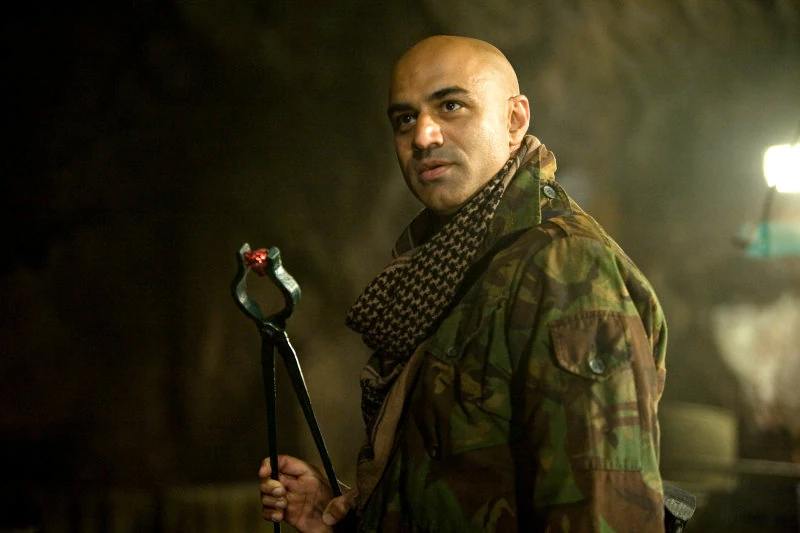
As Raza in 2008’s Iron Man.
Is there another actor who you get mistaken for?
Yes. Me. [Laughs.] Somebody came up to me this week and said, “Y’know who you remind me of? You know that guy who was in Iron Man?”
On IMDB, it says your nickname is “The Danger”?
[Laughs.] Yes, it is. It’s because in Swedish, “faran” means “the danger.” A Swedish friend who was on set with me once told me that, and on that set, people started to call me “The Danger.” So it became a nickname.
Before you do Macbeth, you’re doing three movies. What are they?
Well, they’re all very different. One is a kind of espionage thriller. The other one I just finished is a movie set during the 1918 flu outbreak in New York, which sounds strange, but it was a lot of fun. And I’m doing a movie right now based on a true story about this young boy who gets cancer and his family dealing with that tragedy. And there’s actually a fourth. I’m doing a sports biopic in Asia. After that, I’ll be in Boston to do Macbeth.
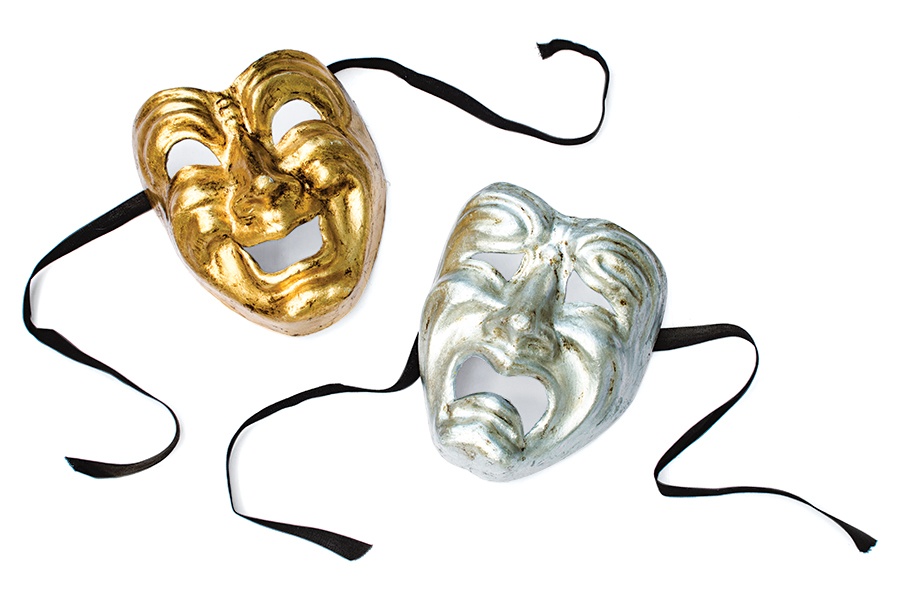
Photo via GldBurger/Getty Images
By the Numbers
All the World’s a Stage
And for several weeks each summer, so is Boston Common. Here’s what it takes to make it happen.
192
Number of scheduled rehearsal hours required to bring Commonwealth Shakespeare Company’s Macbeth production to life.
17,121
Number of words in the uncut text of Macbeth, which will be displayed in open captioning during the performances this summer as part of a new accessibility initiative.
12,000
Distance, in feet, of the lighting cable used to illuminate the stage on Boston Common. That’s the equivalent of 33 football fields.
90
Approximate number of actors, designers, technicians, interpreters, front-of-house staff, and other skilled laborers it takes to create the shows each summer.
850,000
Approximate cost, in dollars, of putting on the Free Shakespeare on the Common series.
First published in the print edition of the July 2023 issue with the headline “‘What Bloody Man Is That?'”
Previously
- The Interview: The ‘Quin House Cofounder Sandy Edgerley
- The Interview: Crime-Fiction Writer Dennis Lehane
- The Interview: Novelist Hank Phillippi Ryan
- The Interview: BECMA Head Nicole Obi
- The Interview: GBH President and CEO Susan Goldberg
- The Interview: MIT President Sally Kornbluth
- The Interview: Boston Public Library President David Leonard
- The Interview: CNN Anchor and Correspondent Audie Cornish
- The Interview: Joey McIntyre of New Kids on the Block


